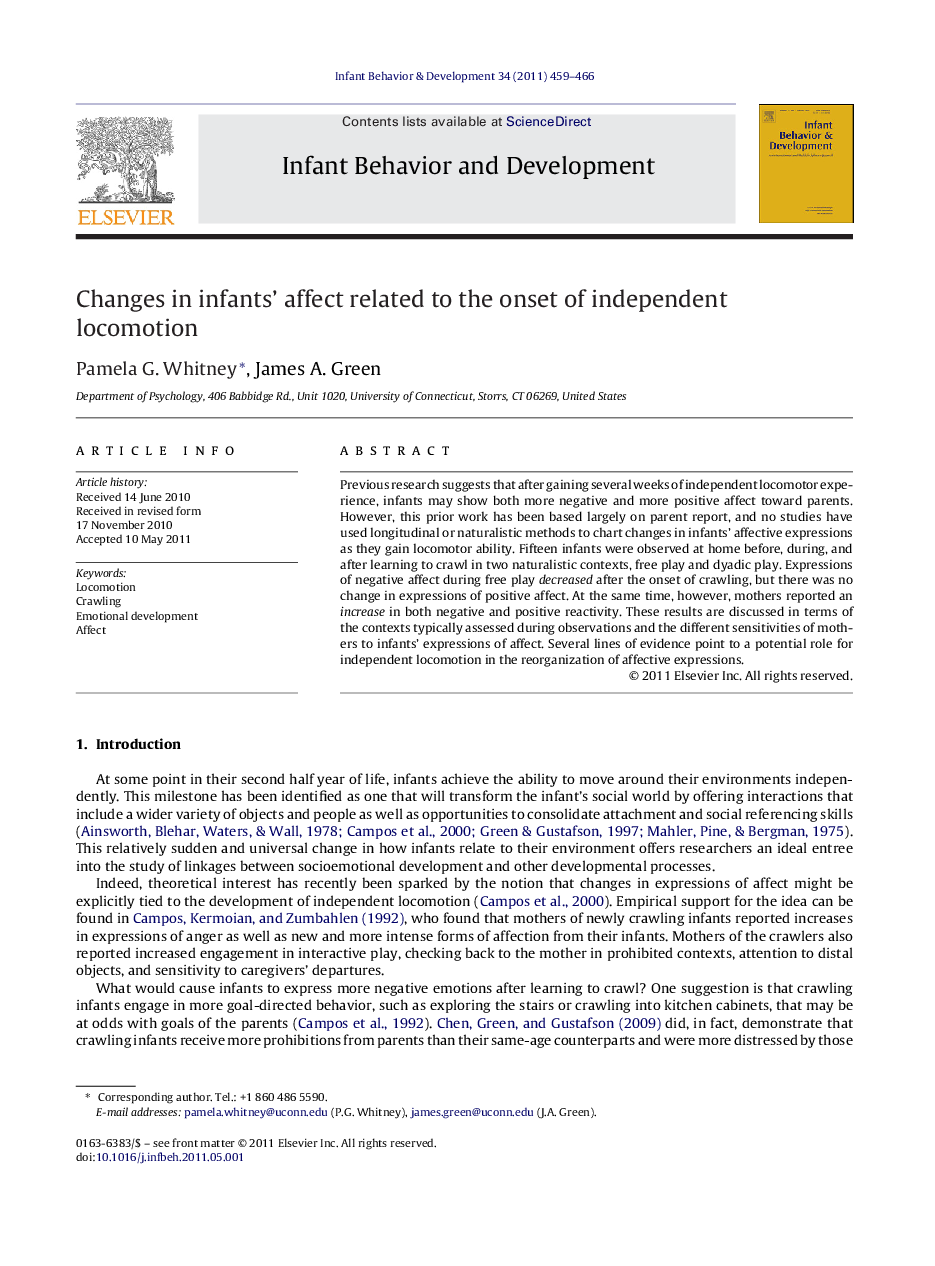| Article ID | Journal | Published Year | Pages | File Type |
|---|---|---|---|---|
| 917321 | Infant Behavior and Development | 2011 | 8 Pages |
Previous research suggests that after gaining several weeks of independent locomotor experience, infants may show both more negative and more positive affect toward parents. However, this prior work has been based largely on parent report, and no studies have used longitudinal or naturalistic methods to chart changes in infants’ affective expressions as they gain locomotor ability. Fifteen infants were observed at home before, during, and after learning to crawl in two naturalistic contexts, free play and dyadic play. Expressions of negative affect during free play decreased after the onset of crawling, but there was no change in expressions of positive affect. At the same time, however, mothers reported an increase in both negative and positive reactivity. These results are discussed in terms of the contexts typically assessed during observations and the different sensitivities of mothers to infants’ expressions of affect. Several lines of evidence point to a potential role for independent locomotion in the reorganization of affective expressions.
► Examined how infant's affect changes with the onset of independent locomotion. ► Infants were observed at home in a longitudinal design. ► Observations began at 6 months and continued until 1 month after crawling began. ► After crawling, infants showed less negative affect but no change in positive. ► Independent locomotion may have reorganizing effects on emotional development.
